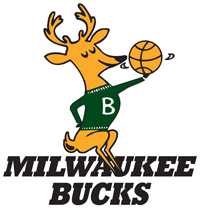Pretty thin gruel from the NBA bloggers, who claim that NBA expansion is on the way to Seattle and Louisville in the near future. Here’s why it won’t happen.
These days, all it takes is an unnamed source and some incorrect assumptions to start chatter in the alternative Internet media about what could be. The past several days has seen folks from SB Nation lay out a series of nonsequiturs to argue why Seattle and Louisville to be added in a future round of NBA expansion. The reasoning, once you cut past the dense verbiage, is that the NBA should expand because it can and a single unnamed source says the NBA will probably look at it, despite what Adam Silver says. Flush with cash from a new TV contract, the league should look at adding two more teams.
It all depends on Milwaukee….
 Yes, the NBA is looking at a great expanded TV contract in coming years — but adding Seattle and Louisville to the mix will decrease the amount each team owner receives from that contract and won’t materially change the terms of that contract for the networks. When TNT and ESPN negotiate a TV deal, they’re already looking at the nationwide picture and don’t assume they’ll see a material uptick in ratings because Louisville is an NBA market. The entire Sonicsrising/SB Nation argument relies on this quote:
Yes, the NBA is looking at a great expanded TV contract in coming years — but adding Seattle and Louisville to the mix will decrease the amount each team owner receives from that contract and won’t materially change the terms of that contract for the networks. When TNT and ESPN negotiate a TV deal, they’re already looking at the nationwide picture and don’t assume they’ll see a material uptick in ratings because Louisville is an NBA market. The entire Sonicsrising/SB Nation argument relies on this quote:
A league source who asked to remain anonymous has told Sonics Rising that “there’s a good chance, not definitively so, but good that Seattle and another expansion city will be added to the next TV contract. The Seattle market is bigger than most think. Lot of untapped revenue we are losing out on there” (emphasis ours).
Well…no. It’s hard to argue adding Seattle will cause TNT and ESPN to raise their bids. There may be some incremental income to be made with mobile and digital rights, but the vast majority of revenues in the TV deal will come from traditional broadcasters.
And while bringing Seattle back into the mix may be a good business proposition that’s seen as inevitable in NBA circles — Chris Hansen has a solid arena plan with solid investors — there’s one big reason why nothing will happen any time soon: the unsettled state of the Milwaukee Bucks. Despite the sale of the Bucks to two New York City money managers, the team’s future in Milwaukee is far from assured: you won’t see any serious talk about public funding about a new arena until after this fall’s gubernatorial election, and if Scott Walker wins reelection (which means he’ll be running for president immediately and needing to placate the conservative right in his party), you can kiss any state funding goodbye. If there’s no new arena, there’s the very distinct possibility that the team will be sold or moved to…Seattle.
Cities like Seattle play a vital, but somewhat distasteful role for professional sports leagues: they’re always a threat for a relocating franchise. There’s little chance Sacramento officials could have pushed through a new-arena plan without Chris Hansen threatening to buy the Kings. No way the Minnesota Timberwolves can push for a Target Center renovation without the threat of relocation. And with new-arena talk likely to pop up in Phoenix in coming years, having a market like Seattle hanging in the wings is a good thing.
So until the Milwaukee arena situation is settled, there’s no reason to think anyone will seriously be discussing expansion. If Steve Ballmer, the former Microsoft CEO buying the Los Angeles Clippers, says he moved forward with that purchase because he didn’t see NBA expansion to Seattle happening any time soon, you can believe him:
“The tricky thing now is when and if the NBA would support expansion, which is not on the table,” stressed Ballmer. “I can’t tell you when it would happen here.”
That’s why he says he turned his attention to the Clippers.
“It’s my dream to have a team in Seattle — spent some time on that, wish that had worked,” he added. “With luck it maybe happens in the next few years. If it takes more than that, I’ve decided this was the best path for me to take.”
And then there’s Louisville….
 Proponents of NBA expansion say Louisville is the perfect untapped market, filled with nostalgic references to Louie Dampier launching threes with a red, white and blue basketball. Why, there’s even a perfect arena in place: KFC Yum! Center.
Proponents of NBA expansion say Louisville is the perfect untapped market, filled with nostalgic references to Louie Dampier launching threes with a red, white and blue basketball. Why, there’s even a perfect arena in place: KFC Yum! Center.
But when it comes to the economics of pro basketball, KFC Yum! Center is actually a liability, not an asset, when it comes to the NBA.
There’s a reason why major colleges and NBA teams don’t share arenas: there is never enough revenue to go around. You can’t sell the same real estate two different ways at an arena: you can’t double the naming-rights revenue, you can’t double sponsoring-rights revenue, you can’t double suites revenue by adding an NBA team, and you generally can’t double the number of fans shelling out big bucks for sporting events. That’s why you see very few major college programs share an arena with an NBA team — and where they do, there are usually financial issues for all involved. (See: the Milwaukee Bucks, Marquette and BMO Harris Center finances for a perfect example. Also, there’s a good reason why DePaul passed on a United Center lease and instead pursued a new arena near McCormick Place: money.)
Which is why adding a team to an arena already facing serious financial issues for at least the next five years is something the smart folks at the NBA will avoid. NBA expansion certainly won’t expand the financial pie at KFC Yum! Center unless potential NBA owners agree to a raft of conditions that put them in a financial hole before a single game is played.
In conclusion
With the situation in Milwaukee still unsettled, NBA expansion talk is certainly premature. This isn’t to say it won’t happen in the next decade, but if a new Bucks arena fails to materialize — and that’s certainly a distinct possibility at this point — then Seattle becomes a prime target for a franchise relocation. And without Seattle as a market, NBA expansion makes little sense. So the future form of professional basketball in Seattle really depends on the ability of two money managers from New York City convincing Milwaukee officials and possibly a hostile governor to put public money into a new downtown arena.

